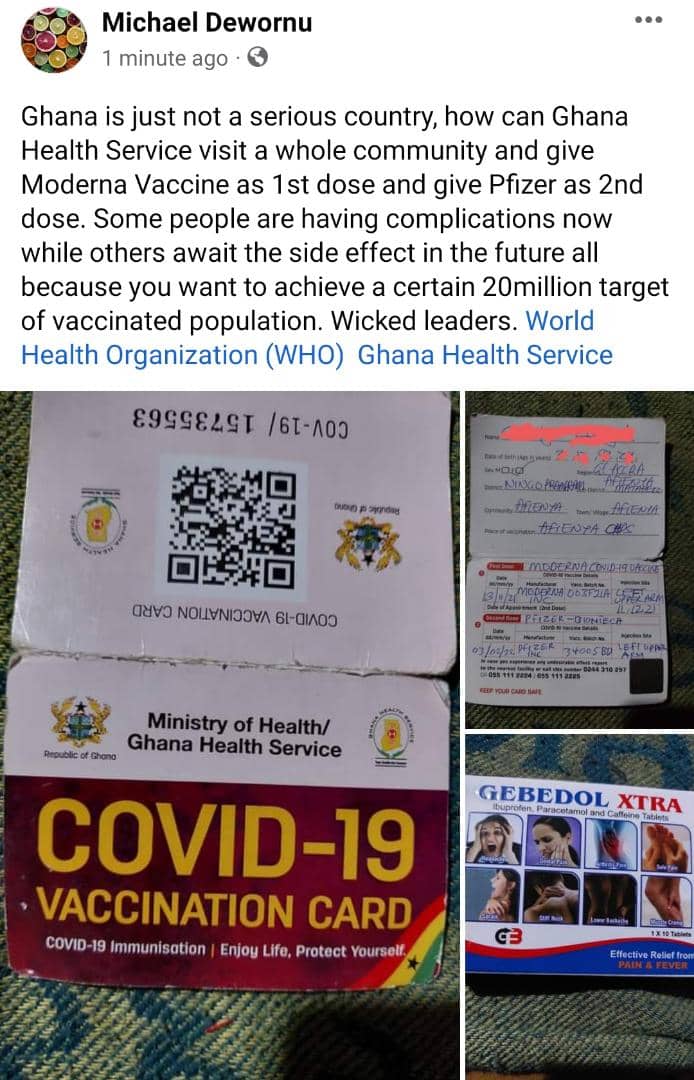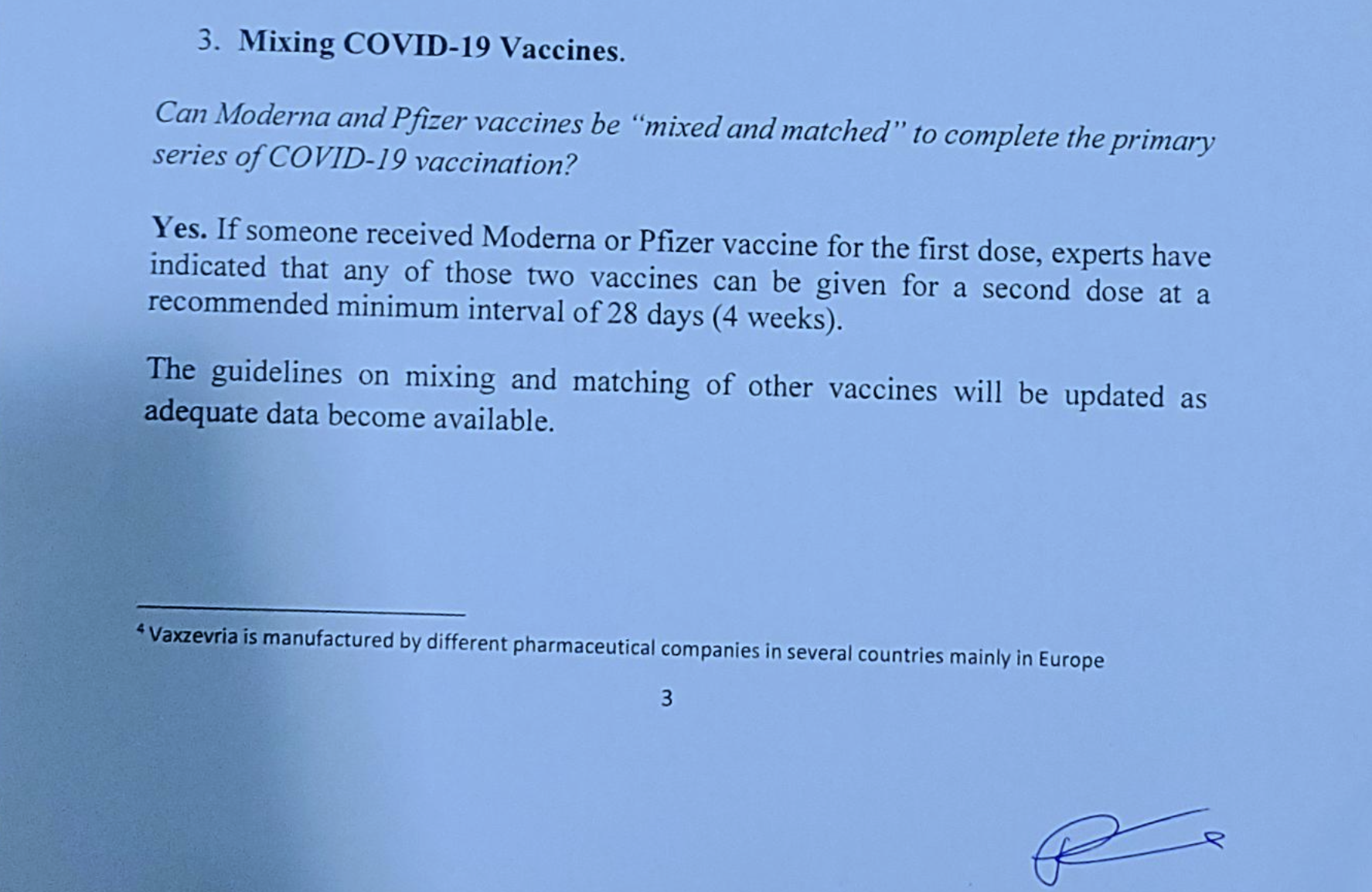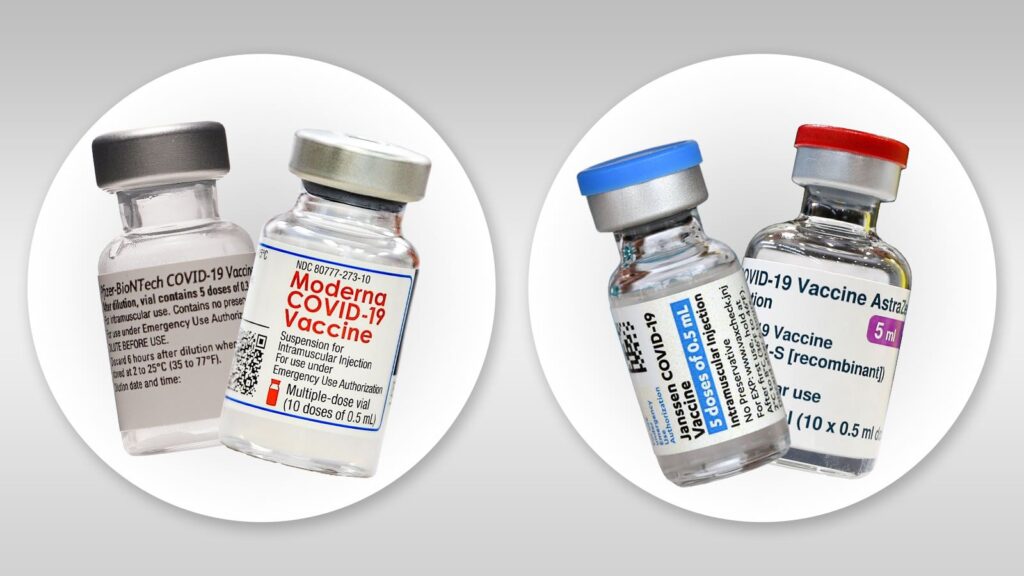Has the Ghana Health Service (GHS) approved the mixing and matching of COVID-19 vaccines?
A Facebook user claims some Ghanaians have received the Moderna and Pfizer-BioNTech COVID-19 vaccines as their first and second dose.
After tagging the World Health Organization (WHO) and the Ghana Health Service (GHS) in the post, the author of the now-deleted post claimed that recipients of the vaccines have developed complications.

Claim
“How can Ghana Health Service visit a whole community and give Moderna vaccine as 1st dose, and give Pfizer as 2nd dose. Some people are having complications now while others await the side effect in the future,” the post partly said.
This fact-check report will seek to verify the concerns raised in the post.
Ghana Health Service policy
Yes, the Ghana Health Service has begun mixing and matching mRNA-based vaccines, including Pfizer and Moderna COVID-19 vaccines.
This initiative forms part of the Ministry of Health and Ghana Health Service’s (GHS) new COVID-19 vaccination policy announced on January 19, 2022.
“Experts have indicated that any of those two vaccines can be given for a second dose at a recommended minimum interval of 28 days – 4 weeks”, the Ghana Health Service(GHS) stated in a communique.

Mixing and matching of COVID-19 vaccines
Several countries started mixing and matching COVID-19 in July 2021.
A factsheet produced by GhanaFact showed countries like Canada, Germany, France, Sweden, Finland, Denmark and Norway were mixing vaccines – with either the AstraZeneca-Oxford, Pfizer-BioNTech or Moderna shots being administered interchangeably in certain situations.
World Health Organization recommendation
The World Health Organization’s position on mixing and matching at the time highlighted the following;
- On 15th June 2021, WHO’s Strategic Advisory Group of Experts on Immunisation (SAGE) updated its interim recommendations on the Pfizer vaccine to give a permissive recommendation to use the Pfizer vaccine as a second dose following a first dose with the AstraZeneca vaccine if a second dose of AstraZeneca vaccine is not available due to supply constraints or other concerns, the team also told GhanaFact.
- A clinical trial led by the University of Oxford, in the UK is currently ongoing to investigate mixing the regimen of the AstraZeneca vaccine and the Pfizer vaccine.
- This trial was recently expanded to include the Moderna and Novovax vaccines. CEPI, which leads the R&D aspect of the COVAX facility, announced on May 26 that it will fund an expansion of the clinical trials.
Meanwhile, the Director of the Immunization, Vaccines and Biologicals of the World Health Organization, Dr Katherine O’Brien, at a press briefing on September 17, 2021, said there is evidence mixing of COVID-19 vaccines are safe.
“We do have safety evidence on this, and that’s an important attribute of anything that we would recommend is to be sure we’ve looked at the safety already,” she said.
According to Dr Katherine O’Brien, the WHO has evidence on both the immunogenicity and the safety of combining an AstraZeneca vaccine dose with either of the mRNA products, the Pfizer, and the Moderna products.
Dr O’Brien also explained the safety of Mixing and Matching as;
- We have had clinical trials done combining with a first dose, either AstraZeneca or an mRNA vaccine and then the second dose, you know, switching over to the other product.
- And what we know about the safety is that the amount of reaction in your arm and some of the general short-term reactions that people get – not feeling well or a low-grade fever are generally speaking the same, whether you mix and match or whether you use the same regimen.
By: Gifty Tracy Aminu





